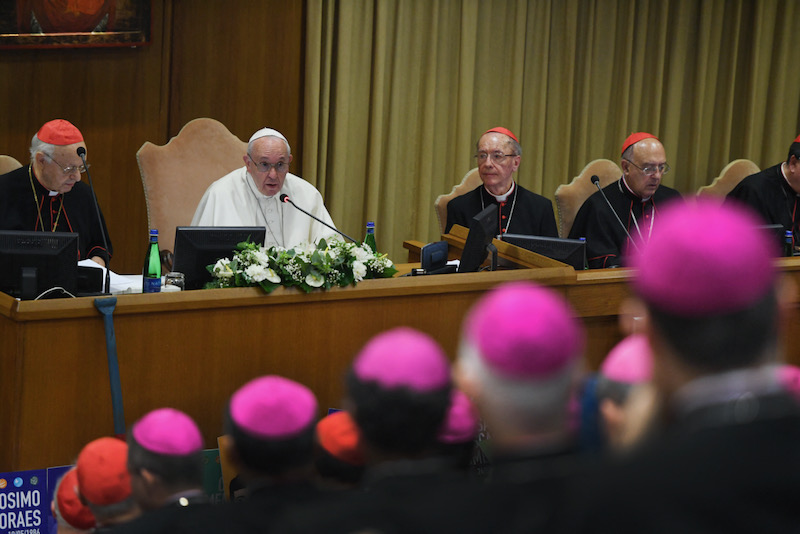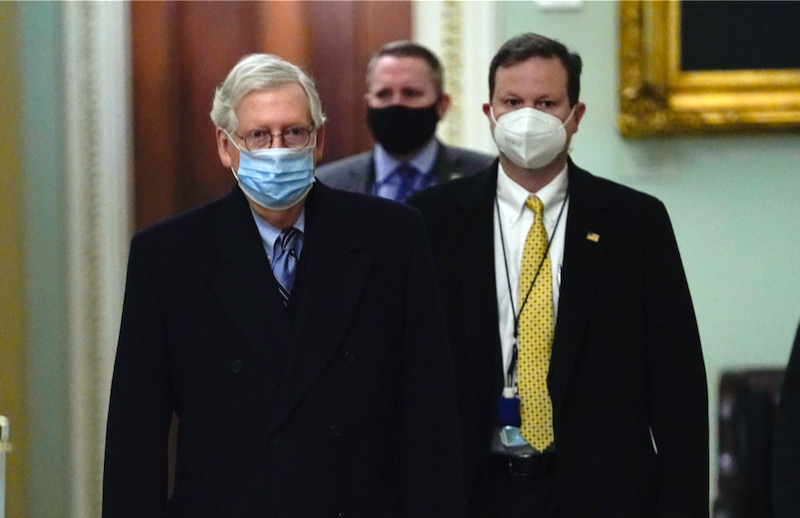Donald Trump is not guilty. I say this as someone who devoutly believes the world would be a far better place if he were to vanish from the face of it and never be heard of again. He is an enemy of civilisation, without decency or honour; he is a disgrace. But he is not guilty of the charges brought against him in the impeachment trial in the United State Congress.
Central to the charge is the allegation of a “Big Lie” that he propagated time and again, namely that the presidential election in November 2020 was really won by him, and the contrary result was, and could only have been, because of widespread voter fraud. He was utterly wrong about this, but the point is he believed it. Why does someone go on believing something for which there is no factual evidence to speak of? It become an article of faith, not subject to scientific disproof. And in this case it points to a certain derangement of the mind, which has somehow come to occupy a false reality. I cannot explain it, but all the evidence points that way. Madmen aren't lying when they believe in absurd things. They are saying what they think is the truth. No evidence whatever has been produced that Trump doesn't believe what he says he believes.
So the Big Lie thesis falls. With it goes the prosecution's theory of his motivation. They alleged that he sent the mob to wreck the Capitol, the seat of democracy in the United States, because he rejected the result of the democratic process. But he didn't. He wanted that process to have a different outcome. He wanted the Vice President, Mike Pence, who was presiding over the formal confirmation of the electoral college votes from all 50 state, to declare that there was insufficient certainty as to the accuracy of the votes, and that they should therefore be referred back to the 50 state legislatures for reconsideration. Some of them would, Trump hoped and expected, reverse the previously announced result and hand the electoral college votes to him.
This was Trump's only remaining route to retaining the presidency, having exhausted all legal challenges and having failed to pressures various local politicians to take his side. Having Pence assassinated was no part of his plan and would have achieved the opposite result. As he must have known, Pence's replacement in the event of his demise, next in line to the throne as it were, was House Speaker Nancy Pelosi, his mortal enemy. She would have been the new vice president, and therefore chair of the Senate.
He had failed to persuade Pence to reject the result of the electoral college on the grounds of uncertainty, because Pence insisted, like it or not, he had no such power. But he did not give up trying to persuade him. Even as the mayhem caused by the mob had driven senators and congressmen from their chambers to hide being locked doors, Trump was on the phone to some of them, trying to persuade them to pile more pressure on Pence to change his mind. A dead Pence was no use to him than a wrecked Senate chamber. He needed it in session, Pence in the chair, so Pence could announce he had referred the electoral college vote back to the separate state legislatures.
A lot of people present during the invasion of the Capitol remarked that the mob seemed to have no idea what do to next. Hanging Pence and shooting Pelosi were not their premeditated intention. This absence of intention supports the theory that Trump did not intend the Capitol to be invaded. It was not part of his plan. The fact that the hotheads and lunatics in the mob did so was predictable, but only if one other factor as in place.
The Capitol had to be poorly defended. Did Trump have this vital piece of information? There is no evidence that he did, and for him to be found guilty of intending the invasion to happen, he would have had to know this in advance. It is clear those whose responsibility it was to keep the Capitol secure foresaw no imminent danger. The lead prosecutor in the Senate trial told how he had taken his family to watch the ceremonial proceedings, and his daughter had hesitated and asked him: “Is it safe?” He assured her it was. That is probably what 99 per cent of them would have said. And Trump would have shared that consensus that the Capitol was impregnable. No evidence has emerged that he deliberately weakened those defences, indeed nor that he could have done. Capitol security is a matter for Congress.
So he sent the mob down Pennsylvania Avenue to stand outside the Congress precincts and to shout loudly. He might have anticipated violence between the more unruly elements in the mob and the Capitol police. Incitement to riot would have been a plausible charge to bring against him. But if he did not know the security of the Capitol building was breachable, he cannot be accused of intending it. In any event, what purpose would it have served? His one last route to holding on to the presidency would have been to persuade the Vice President, the presiding officer of the combined Houses in joint session, to change his mind.
Why did he think Mike Pence could be persuaded to change his mind? In the moral universe inhabited by Donald Trump, the deal is all. A sociopath lacks a moral framework, but he had constructed one round the notion of the transaction. I do you a favour and you owe me one back. He had elevated Pence to his distinguished, indeed illustrious, position as Vice President. So Pence owed him. The favour he was calling in from Pence was obvious – rejecting the electoral college votes as invalid.
Pence's moral universe, from all that we know about him, was quite different. It was all about moral obligations and firm Biblical principles. But a common characteristic of those without an objective morality is that they cannot imagine what it would be like to have one. He could not see where Pence was coming from. In Trump's mind his obligations were not to his own standards and values, but to Trump, his benefactor.
So if Trump were on trial for being an atrocious human being, an immoral scallywag and scoundrel, I would have no difficulty with a guilty verdict. But inciting insurrection doesn't fit the facts. On that charge, a not guilty verdict is correct.
ends



 Loading ...
Loading ...
What do you think?
You can post as a subscriber user ...
User comments (1)